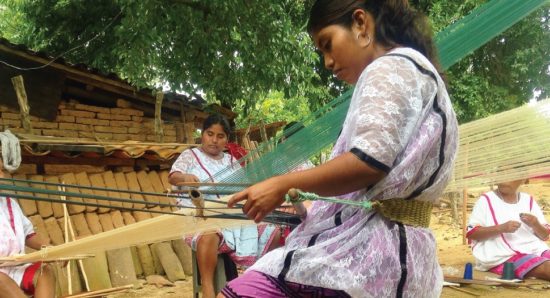This post was contributed by Real Estate Unlimited, an agency serving clients in the Los Angeles, California area….
Nonprofit agencies constantly seek new ways to serve. Typically operating on a shoestring budget, they must seek funding sources in creative ways. Since many nonprofits are part of dynamic economies in the developing world, they must also contend with changing client demographics and markets in the communities they serve.
Most recently, nonprofits have developed a new way to deliver services, grow local economies, and reach out to potential donors: the social business.
Social businesses are nonprofit business ventures. They allow nonprofits to offer job training and meaningful work to clients. They create a new business that can serve the local community. They give social businesses myriad opportunities to spread their message to customers and visitors. They also allow nonprofits to dedicate their activity – volunteer hours, nonprofit expertise, infrastructure, donor networks – to a sustainable enterprise.
Most social businesses sell goods and services that can be produced by employees with little training. For example, cafés and bakeries allow clients to work as baristas and servers and train as chefs. Small handicraft boutiques give clients the chance to learn basic sewing skills, opening up possibilities in tailoring and garment manufacture. Spas and hair salons allow clients to train as stylists, manicurists, and masseuses.
Many nonprofits operate in countries with economies driven by tourism, making social businesses a highly effective to promote nonprofit goals. By branching out into social business ventures, nonprofits can attract attention from tourists. These tourists support the nonprofit as social business customers – eating at the restaurant, sipping a latte at the café, buying a souvenir from a handicrafts stall. Social business products offer tangible opportunities to help, even for customers focused on enjoying their vacation abroad. Even better, customers spread the word about the nonprofit whenever they recommend a social business to their friends. Social businesses have taken the lead on social media marketing, inviting customers to share info about their products and mission when they post updates about their trip.
Social businesses can even incorporate messaging into products – for example, Phnom-Penh-based nonprofit Daughters of Cambodia sells tote bags, tshirts, and household goods with DOC slogans.
Sometimes, messaging opportunities open up brand new product lines. Sudara, a social business based in India, began by selling their trademark “Punjammies” pants: light cotton slacks made from colorful Indian cottons. Now they sell a range of casual clothing and sportswear, including t-shirts with anti-exploitation messages like “This Is Not a Sweatshop,” and “People Are Not Property.”
Social businesses must tackle all of the challenges faced by entrepreneurs in a competitive market, but they face special hurdles. First and foremost, their objective is not pure profit. They can’t simply junk a business model and start over – if they employ clients, they can’t downsize in order to save overhead. Social businesses are part of the nonprofits they support, and they exist to train and employ clients.
Many nonprofits feel a strong commitment to ethical and sustainable production – for example, Southeast Asian nonprofit Friends International (Mith Samlanh) makes most of its products from recycled materials like tetrapak containers and bicycle tires. Since social businesses serve communities in the developing world, they also must contend with volatile economies and fragile infrastructure.
This intimate connection between local communities and social-business models can be an advantage. For example, The Lavender Project (Azul Lavanda or “Blue Lavender” in Spanish), a La Colorada-based social business, takes its name from the organic lavender fields managed by its employees, the residents of La Colorada. Every aspect of The Lavender Project builds public awareness of La Colorada, surrounding Guanajuato, and the traditional farming culture that sustains so many of the region’s people.
Although social businesses are not yet as thick on the ground in Mexico as in other countries with strong tourist markets, they are trending. Fábrica Social is a nonprofit dedicated to preserving traditional Mexican art and craft forms, including pottery, textiles, and woodworking. For Fábrica Social, social business is a built-in solution: the nonprofit can promote traditional craftways through sales of handicrafts.
Yucatán’s own Fundación de Artistas operates a nonprofit café out of its community gallery space in Merida. On top of added revenue, the café helps underline the organization’s mission: creating a social space where locals can learn about art.
Social business success can pose multiple challenges to nonprofits used to operating as charities, but they can also offer a range of new opportunities for sustainable revenue and community development. Social businesses have been proliferating worldwide, and they’re most popular in tourist hotspots where cafes, spas, boutiques, and galleries can find an eager customer base.
All signs point to an expanding social business presence in Yucatán, so keep an eye out for nonprofit ventures near you. In the meantime, check out social business storefront sites like Nepal’s Mulxiply or Guatemala’s Cojolya. Shopping never felt so good!
About the Author: Real Estate Unlimited is a boutique real estate agency serving clients in the Los Angeles area, including the historic neighborhoods of Echo Park, Eagle Rock, Los Feliz, and Silverlake. Our digital marketing expertise and strong local connections combine to form an outstanding level of service for all our clients.







1 comment
Thanks for sharing the helpful post. Charity organizations and NGOs around the world cannot function without the help of volunteers and supporters. Being a volunteer, one can get a chance to work with poor people in various parts of the world. You can understand the problems faced by people who are in need so that you can help them accordingly. One of my friends suggested to visit this site http://www.mission-humanitaire-afrique.org to join as a volunteer and help the needy people.